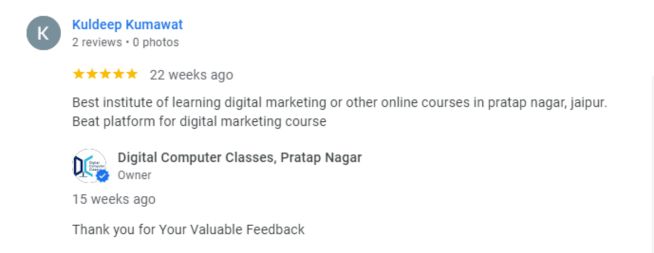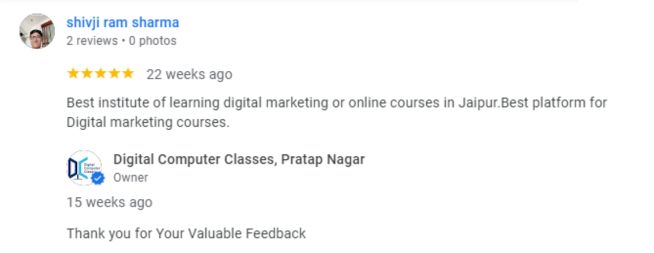DSA
Overview:
Data Structures and Algorithms (DSA) form the fundamental building blocks of efficient computer programming. Mastering DSA enables developers to solve complex problems, optimize code performance, and design scalable applications. This course covers essential topics such as arrays, linked lists, stacks, queues, trees, graphs, sorting algorithms, searching algorithms, recursion, dynamic programming, and more.
Course Objectives:
- To gain proficiency in fundamental Data Structures and Algorithms.
- To understand the principles and implementation of essential data structures like arrays, linked lists, stacks, queues, trees, and graphs.
- To learn various sorting algorithms (e.g., bubble sort, merge sort) and searching algorithms (e.g., linear search, binary search).
- To explore advanced topics such as recursion, dynamic programming, and graph algorithms.
- To apply DSA concepts to solve real-world problems efficiently.
- To analyze the time and space complexity of algorithms for performance optimization.
Prerequisite / Target Audience:
This course is tailored for individuals aspiring to become proficient in Data Structures and Algorithms, crucial for careers in software development and computer science. Participants should have a basic understanding of programming concepts such as variables, loops, functions, and conditional statements. Familiarity with any programming language is advantageous but not mandatory.
Course Modules
- Introduction to Data Structures
- Introduction to Algorithms
- Complexity Analysis (Big O notation)
- Asymptotic Notations: Θ, Ο, and Ω
- Space Complexity
- Arrays: Basics, Operations, and Problems
- String Manipulation and Problems
- Two Pointer Technique
- Sliding Window Technique
- Singly Linked Lists: Implementation and Operations
- Doubly Linked Lists
- Circular Linked Lists
- Linked List Problems: Insertion, Deletion, Reversal
- Stacks: Implementation, Operations, and Applications
- Queues: Implementation, Operations, and Applications
- Deque (Double-ended Queue)
- Understanding Recursion: Base Case, Recursive Case
- Recursive Algorithms
- Backtracking: Principles and Applications
- Problems: N-Queens, Subset Sum, Permutations
- Introduction to Trees: Types (Binary, Binary Search, AVL, etc.)
- Binary Tree: Traversal (Inorder, Preorder, Postorder)
- Binary Search Tree (BST): Operations, Search, Insertion, Deletion
- Balanced Binary Search Trees: AVL Trees
- Introduction to Heaps
- Heap Operations: Insert, Delete, Extract Max/Min
- Applications of Heaps: Heap Sort, Priority Queues
- Hash Tables: Operations and Collision Handling
- Hash Functions
- Applications of Hashing
- Graph Representation: Adjacency Matrix, Adjacency List
- Graph Traversal: Breadth-First Search (BFS), Depth-First Search (DFS)
- Shortest Path Algorithms: Dijkstra’s Algorithm
- Minimum Spanning Tree: Prim’s and Kruskal’s Algorithms
- Introduction to Dynamic Programming (DP)
- DP Approach: Memoization vs Tabulation
- Examples: Fibonacci Series, Longest Common Subsequence (LCS), Knapsack Problem
- Greedy Algorithms
- Divide and Conquer
- Bit Manipulation
- Time and Space Complexity Optimization
- Handling Edge Cases
- Practice Problems and Platforms
- Building an Application using DSA Concepts
- Performance Analysis
- Code Optimization

Grab the spotlight by getting certified!
Certificates can help you learn new skills, advance your career, and stand out to employers. Here are some benefits of certificates.
Industry-Recognized Certificate
MSME & ISO Certified recognisation helps you to stand out in job market
Increase Employability
This increases employability and enhances their chances of securing desirable job opportunities.
Enhancing Career Oportunities
Students can gain an edge in the job market and enhances their career opportunities.
Why Choose Us!
Free Career Counselling & Guidance from Us For your Job We work with you, not for you. Although we have a great resources.
10+ Year Experienced Trainer
Get experienced in divergent Era with our professional & experience trainers and team member can provide you with valuable insights skill at Digital Computer Classes.
Get Free Intership
Gain practical experience through complimentary internship placements,providing you with valuable hands-on learning in real-world scenarios, essential for your career growth.
Work on Live Projects
Immerse yourself in live projects during your training experienced the gap between theory and practice.This practical implimentation boost your skills and confidence in your choosen field.
Hi-Tech Classrooms
Experience learning in air conditioning classrooms equipped with LED screen facility its enhancing your educational journey with a conducive environment that fosters concentration,innovation and collaboration.
Real-Time Doubt Solving Session
During sessions where instructors address your queries promptly,ensuring a doubtless learning experience. Clear doubts as they arise, maximizing your understanding and progress.
100% Placement Assistance
We have our own company and tied with 21 +partnership in jaipur we assure that you will get 100% placement in our All professional courses.




















